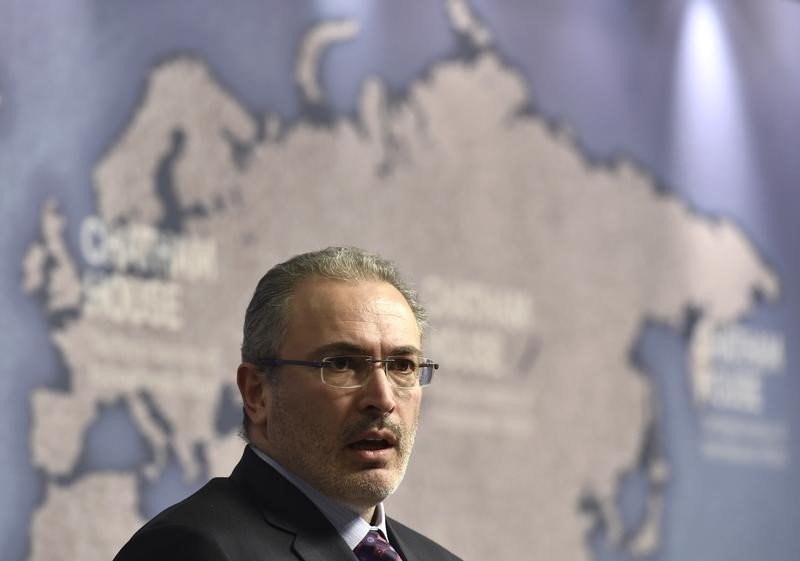MOSCOW (Reuters) - Russia wants to question former oil executive Mikhail Khodorkovsky as a suspect in a murder case that has been reopened because of new evidence, federal investigators said on Tuesday.
Khodorkovsky, the former owner of the now-defunct Yukos oil company, spent a decade in jail after falling out with Vladimir Putin. Now living in Switzerland, he remains one of the president's most vocal critics.
He has denied involvement in the 1998 murder of Vladimir Petukhov, the mayor of a Siberian town where Yukos had its biggest oil production unit. He has suggested on Twitter (NYSE:TWTR) that the new investigation was politically motivated.
Announcing on its website that the case had been reopened, the federal Investigative Committee, which answers directly to Putin, said it wanted to question Khodorkovsky.
"According to information obtained by the Investigative Committee, Yukos head Mikhail Khodorkovsky could have ordered this murder and a number of other serious crimes," the committee's spokesman, Vladimir Markin, said.
"I don't think his absence from Russia will be an insurmountable obstacle to carrying out all the necessary investigative actions."
Petukhov, who was shot dead, had been leading a public campaign against Yukos over alleged tax arrears. A Yukos security chief was later convicted of his murder.
Vadim Klyuvgant, a lawyer for Khodorkovsky, told RIA news agency Markin's remarks were "fantasy".
Khodorkovsky suggested they were a response to articles he has written criticising Putin or to a court settlement in The Hague compensating Yukos shareholders who lost out when Russia seized the company, broke it up and nationalised it.
"I ask Markin to explain whether this is a reaction to implementation (of the case in) The Hague or a reaction to the series of articles on the future of Russia after Putin?" he wrote on Twitter.
Khodorkovsky, once Russia's richest man, was arrested in 2003 and convicted of theft and tax evasion in 2005. Critics saw this as punishment for opposing Putin, which the Kremlin denies. He was pardoned and released from prison in 2013.

An international arbitration court ruled last July that Russia must pay $50 billion for expropriating Yukos' assets. It has not complied and a group of former shareholders has started legal proceedings to have the order enforced.